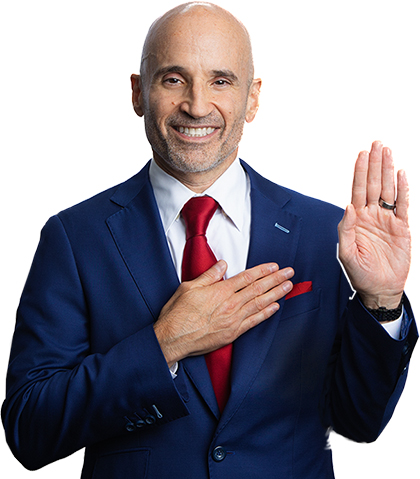A Traumatic Brain Injury is caused by an external blow to the head or attack of any foreign body on the brain. This type of brain injury necessitates something to hit the head and brain hard and deep enough to harm the skull and leave traces of trauma inside the brain.
Some patients may immediately experience mild to severe symptoms, while others may not develop serious traumatic brain injury symptoms for years after the event. It is not unusual for people who have survived a brain injury to develop cognitive impairments such as the ones that are listed below:
· Difficulty remembering things
· Difficulty in focus of thinking
· Difficulties concentrating on current activity
· A lingering feeling of mental weariness and being overburdened all the time.
Impairments of pragmatic communication might occur in some patients depending on the level of severity of the TBI. These may include disruptions in staying on topic, organizing thoughts when speaking, and taking turns in conversation, among other difficulties. After suffering an injury to one or more of the brain regions, patients who have undergone personality skill damaging and have altered behavioral patterns, need a deeper level of treatment and need more time to fully recover.
Sometimes a full recovery is impossible if the alteration of chemical stimuli in the brain is beyond repair. As an effect, the patient might feel out of place or awkward because they cannot fathom why their words or behavior would offend other people. Anger, agitation, or irritated behavior may result from such non-effective communication. Changes in social skills bring about more complex situations because patients can be expected in a certain way in different social settings; however, their brains cannot receive the proper signals, process, and give reactions as per the appropriate social setting.
Training and regular therapies are good ways to work on social communication skills. It might be helpful to put the recovering patient into a group of patients getting treated together and working in social groups so that the training and therapy can boost confidence and fellow-feeling with the other patients.
Speech therapists, occupational therapists, and neuropsychologists are a few medical professionals who can help re-learn the lost social skills. Sometimes, patients might need medical experts who may prescribe medications for the injured patient that can reduce the frequency of aggressive episodes as well as the level of severity associated with them. Working with a therapist who is trained in traumatic brain injuries to learn how to redirect one’s thoughts and actions is another helpful method that can be utilized.
The human brain works in a way that’s mostly uniform for all human beings. Although the brain is an organ in the human body that remains a mystery in many regards, a lot of research still needs to be done to understand the brain and brain injuries. It is inconsistent in studies of how each patient’s brain might respond if a TBI occurs.
The brain normally receives information and internal and external stimuli that enable the actions or reactions through internal or external organs or the limbs at any time. In moderate to severe TBIs, personality or behavioral changes are common effects. It can occur right after the trauma happened- depending on the severity level, type, and other factors. Behavioral changes also might change with the passage of time.
Personality changes can trigger from three sources following a brain injury- specific physiological changes in the brain, which affect how it takes in, processes, and perceives information. A head injury or a TBI can cause emotional lability in a person, which means losing control over emotional expressions. It changes how the patient receives certain stimuli, processes them, and reacts to them, which plays a large role in apparent personality changes or disorders.
As an effect of a TBI, the brain’s chemical composition can be disturbed and altered which mainly triggers personality changes or disorders. Chemical changes trigger neuropsychological diseases like apathy (disorders of motivated behavior, often misinterpreted as laziness or depression and may be linked to aggression, little interest that can precipitate assaultive behavior), affective instability (exaggerated displays of emotional expression, out of proportion to the precipitating stimulus which modifies limbic responses to emotional stimuli), irritability (easily angered reactions including verbal outbursts to aggressive and assaultive behavior), etc.
Other behavioral issues might stem from the TBI if the condition persists for a long time, and eventually, it might generate drastic long-term effects on the psychology of most patients. Such psychological disorders include anxiety, depression, or post-traumatic stress disorder (PTSD).
Anti-depressants and antipsychotics can be of help where medical experts suggest, although these are not a holistic cure. Antidepressants that affect brain chemistry can help improve conditions associated with a chemical imbalance. Antipsychotics are used to manage psychosis (a loss of contact with reality). Since chemical imbalances in a brain caused by a TBI cannot be reversed or fixed, the chemical imbalances might be optimally replenished in some cases, otherwise reduced by medications to make the patient moderately stable.
If the TBI occurred due to any negligent act or failure to act of any other person, then the person who has suffered from a TBI has the legal right to file a lawsuit. A personal injury attorney will investigate your case to determine who is accountable for your injuries. They will then file a lawsuit on your behalf against the other party in the conflict.
If you successfully resolve your claim, you will be compensated for expenses such as medical bills, lost wages, damage to property, and other costs. Set up an appointment with a tough traumatic brain injury attorney in New York as soon as possible to receive your free case evaluation. Call 1-833-TONALAW or contact us online to schedule your free case evaluation.
SHARE











